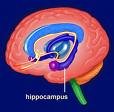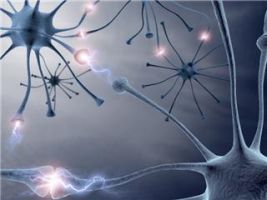Jegersmalezing: ook in jouw survivaluitrusting…. De amygdala!
Dinsdag 9 februari ben je weer van harte welkom op de maandelijkse Jelgersmalezing. Deze keer refreeert Prof.dr. Guillén Fernández, hoogleraar cognitieve neurologie van het Donders Institute for Brain, Cognition and Behavior, Radboud Universiteit Nijmegen. De titel van zijn voodracht: ‘Equippedto survive: Howacute stress affects amygdale processing’.
Beeldvormende technieken, genetica en hormonale invloeden zullen aan bod komen:
Beeldvormende technieken, genetica en hormonale invloeden zullen aan bod komen:
'In response to acute environmental adversity, organisms shift into a state that is optimal to detect and counter imminent threats. To identify neural network dynamics underlying such state changes we probed the human amygdala in a series of fMRI experiment. The amygdala plays a central role in vigilance regulation enabling appropriate threat detection. While this role of the amygdala has high adaptive value under aversive conditions, it might also constitute a key-mechanism for mental pathology if it goes awry. Our data show that experimental induction of acute psychological stress increases tonic amygdala activity and phasic responses to biologically salient stimuli while the functional connectivity to the locus coeruleus is enhanced. This amygdala stress response may go along with higher sensitivity to potentially threatening stimuli, but lower specificity, because the amygdala appears to process positive and negative stimuli in the same way. Moreover, states of heightened stress sensitivity, as they naturally occur during the late luteal phase of the menstrual cycle or in the aftermath of severe stress, affected systematically the amygdala response. Finally, noradrenergic drive appears to control this stress response, because it was affected by pharmacological blockade of beta-receptors and genetic variation of the noradrenergic alpha-2-receptor. These patterns of results reveal basic principles of how the amygdala behaves in aversive, stressful situations. Tracking this stress response in vulnerable individuals longitudinally may reveal mechanisms underlying the most common stress related mental disorders. '
Je bent welkom van 16.15-17.30 uur, in collegezaal 4, locatie K1-S, van het LUMC.
Je bent welkom van 16.15-17.30 uur, in collegezaal 4, locatie K1-S, van het LUMC.
Febr '10.
























































Geen opmerkingen:
Een reactie posten